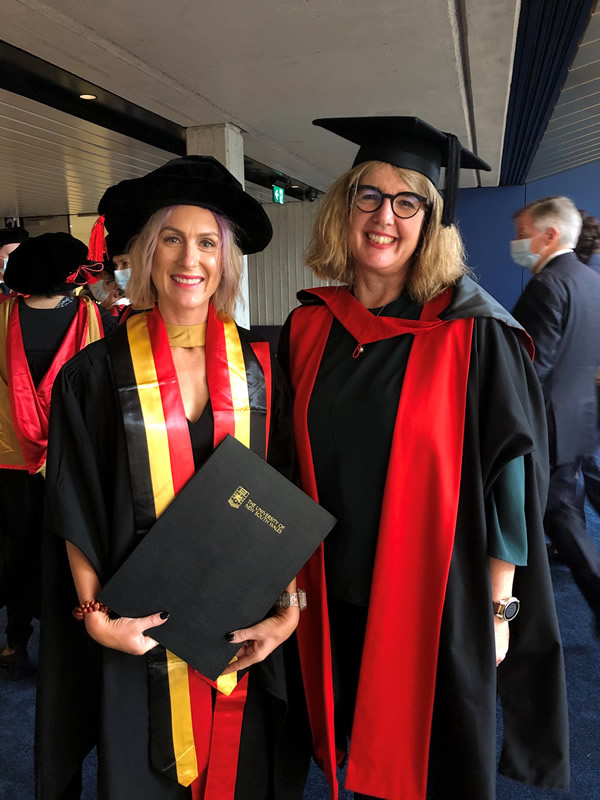Courtney Ryder came to the first IAESS in 1998. In 2021 Courtney gained her PhD from the University of New South Wales for her thesis which focused on understanding the nuanced ways in which health inequity manifestations impact on Aboriginal and Torres Strait Islander families.
Listing all of her inspiring achievements would require much more space than we have available.
As a 15 year old Nunga kid from Southern South Australia, I had no idea what I wanted to do when I finished school. So, when the opportunity arose to attend the first Indigenous Australian Engineering Summer School (IAESS) in 1998, I thought: ‘why not and what do engineers do anyway?’
Little did I know that this would be a transformative experience in shaping my career aspirations. The journey included so many firsts; I hadn’t been on an aeroplane before, travelled to Sydney or been to a university.
Throughout the week at Sydney University IAES School, I participated in a range of activities such as; designing aerodynamic helmets, powering motors with solar panels, creating my own web page and visiting Homebush in the lead up to the Sydney Olympics. I left with a new- found passion and drive to become an engineer.
In 2001, through the Yungorendi Admissions Scheme, I was accepted to study biomedical engineering at Flinders University. Over the next five years, I studied hard to pursue my career aspirations and in March 2006, I graduated with honours – becoming the first Aboriginal biomedical engineer and the first Aboriginal female from the IAES to graduate from engineering.
I would not have been able to achieve any of this, without the generous support of EAA, Rotary and the Aboriginal Health Council of SA. During my time as an engineering student, I undertook the role of peer mentor to Ben Lange at UNSW. I felt proud to be able to give back to EAA and honoured to be part of this special journey for so many Aboriginal and Torres Strait Islander young people in Australia.
Since graduating from biomedical engineering, I have focused my career academically, with a research interest in Aboriginal medical education, injury epidemiology and big data. I have over a decade’s experience in Aboriginal and Torres Strait Islander health education, across medicine, nursing allied health and public health.
In my current academic role at Flinders University I am the Teaching Program Director in Public Health, overseeing undergraduate courses such as the Bachelors of Public Health, through to postgraduate courses such as the Masters of Public Health. In this role I provide strategic leadership surrounding educational activities to assist in developing high-quality educational outcomes. I also topic coordinate in the Masters of Public Healthcourse surrounding the Social Determinants of Health and Wellbeing and First Nations Health and Wellbeing.
My work in terms of educational innovation in Aboriginal Health has been recognised internationally and has resulted in a 2020 Teaching Innovation and Scholarship Award, 2015 LIMElight award and a Churchill Fellowship.
In 2021 I also completed another exciting journey in graduating with my PhD at the University of New South Wales through the George Institute for Health and Wellbeing. My thesis was titled “Discovering the Interwoven Health Inequities inAboriginal and Torres Strait Islander Childrenwith an Acute Burns Injury” which focussed on the health inequity.
My work leading to my PhD focussed on understanding the nuanced ways in which health inequity manifestations impact on Aboriginal and Torres Strait Islander families. In this work I employed a weaving process for Knowledge Interface Methodology, which engages with Indigenous knowledges (knowing, being and doing), Indigenous research methods, principles of Indigenous Data Sovereignty, public health knowledge and quantitative research methods. I continue this work today through grant collaborations and research partnerships. I have a keen focus on changing the data narrative for Aboriginal and Torres Strait Islander health away from a deficit discourse, but also working towards health equity.
I cannot thank EAA enough for having the IAES vision and assisting me on my journey. I will be forever grateful.
Courtney Ryder, PhD BSc BEng(Biomed)(Hons)



